confirmed speakers for Nanotme 2025:
Michele (Miki) De Palma is tenured associate professor of cancer biology at the Swiss Federal Institute of Technology of Lausanne (EPFL), Switzerland. He is executive director and chair of the scientific committee of the AGORA Cancer Research Center (Lausanne). |
Leila Akkari is a group leader at the Netherlands Cancer Institute in the Tumor Biology Immunology department and a senior member of the Oncode Institute. Her research focuses on innate immune cell plasticity applied to the biology of cancers, using elaborate murine models of primary tumors, including brain and liver cancers. Her group investigates and targets the functions of these immune cells in tumor maintenance and therapeutic resistance in order to identify therapeutic vulnerabilities to exploit. She is an expert on tumor-associated macrophages, as evident from grants she received (KWF (2017-YIG, 2019, 2021, 2022)); NWO-XL (2022); ERC-Synergy (2023); Vidi (2019), international brain cancer (BTCF) and myeloid cells in cancer (KWF) consortium grants and EMBO Young Investigator Program (2021) and several pioneering studies on this subject. Moreover, she is involved in science communication advocating for diversity and inclusion in the STEM community. |
Erik Sahai is the head of the Tumour Cell Biology laboratory at the Francis Crick Institute in London. Erik obtained his PhD with Richard Treisman in London studying RhoGTPases and their effectors. He then carried out post-doctoral work in both London (Chris Marshall) and New York (John Condeelis). Following this training, Erik set up his own group at the Cancer Research UK London Research Institute in 2004 and then transferred to the Francis Crick Institute in 2015. His research is focused on the spread of cancer through the body and responses to cancer therapy. In particular, his group is interested in stromal fibroblasts and their interplay with both tumour and immune cells. To study these problems his group uses a wide range of techniques from computational modelling of cell migration, through conventional cell and molecular biology, to intravital imaging of mouse tumours and live analysis of patient derived material. Erik’s contributions have been recognised by the award of the Hooke Medal, and election to EMBO, the European Academy of Cancer Sciences, and the Academy of Medical Sciences. He is president elect of the Metastasis Research Society and serves on the editorial board of several journals, including Journal of Cell Biology, Developmental Cell, and Trends in Cell Biology. |
Prof. Erez is studying the biology of tumor metastasis, focusing on the metastatic microenvironment. The main goal of her research is to characterize stromal and immune pathways that can be targeted by novel therapeutics. |
Natalie Artzi - Harvard Medical School, USA
|
The Östman research group performs translation studies on autocrine and paracrine growth factor signalling in the tumour microenvironment, with particular emphasis on regulation of cancer-associated fibroblasts. |
Dan Peer is a Professor and Director of the Laboratory of Precision Nanomedicine and Vice President for Research at Tel Aviv University. Dan did pioneer work in developing strategies to deliver RNA payloads in a cell specific manner. He developed one of the largest lipid libraries with more than 100,000 different lipids. His lab was the first to show systemic cell specific delivery of mRNA molecules in an animal and the first to show highly efficient therapeutic genome editing in cancer in a cell type specific manner. He also developed the first bacterial mRNA vaccine; He is the recipient of more than 35 awards and honors. He holds 148 pending and granted patents that have been licensed to 13 companies and more than 10 strategies he developed are currently in clinical testing. He is the founder of 4 startup companies (one was acquired by Danaher Cooperation in 2021). He has published more than 180 manuscripts; 3 books and gave numerous invited, plenary and keynote talks worldwide. Dan also serves as an editor and on the editorial board of more than 20 journals. Dan is an International Member of the US National Academy of Engineering (elected 2023) and was elected in 2024 as a Fellow of the US National Academy of Inventors. |
Alberto Gabizon received his M.D. degree from the Faculty of Medicine, University of Granada, Spain, and his Ph.D. in Cancer Immunology from the Weizmann Institute of Science, Rehovot, Israel. He completed his training and certification in Radiation and Medical Oncology at Hadassah-Hebrew University Medical Center, Jerusalem, Israel. During his research fellowship at the Cancer Research Institute of UCSF Medical Center, San Francisco, CA, he pioneered the development of a new generation of long-circulating liposomes known as Stealth liposomes which have greatly improved stability and selective accumulation in tumors. |
Jonathan Sleeman studied Natural Sciences at Trinity College, Cambridge, UK, and received his PhD in 1992 from the University of Cambridge. After postdoctoral work at the Karlsruhe Institute of Technology (KIT), Germany, he was appointed Group Leader at KIT in 1997, and was acting Chair of Genetics 2004-2007. He took up the position of Professor of Microvascular Biology and Pathobiology at the University of Heidelberg, Germany in 2008, and is a core member of the European Center for Angioscience. Prof. Sleeman also remains a department head at KIT. He is executive director of the School of Translational Medicine Mannheim. Prof. Sleeman has coordinated the European Union-funded multi-centre projects BRECOSM and TuMIC, and was President of the Metastasis Research Society 2014-2016. Prof. Sleeman’s research aims to understand the cellular and molecular regulation of metastasis and to use this knowledge to develop novel anti-cancer therapies. |
At the Technion- Israel Institute of Technology, my research group is developing biomimetic nanoparticles (NP) to treat neurodegenerative pediatric diseases, traumatic brain injuries, and breast and ovarian cancers. Our lab's main goal is to be one of the world's leading research groups in developing targeted biomimetic NP that can encapsulate a wide range of therapeutic molecules, including mRNA, proteins, and small molecules, thus revolutionizing how we treat numerous diseases. For example: (1) We improved the therapeutic outcome of pancreatic cancer treatment using a controlled-release enzyme delivery system. (2) We mimic white blood cells binding to inflammatory sites and develop a macrophage biomimetic drug delivery system. (3) We developed the first ever neuron biomimetic nanoparticles that mimics how neurons bind to other neurons through homotypic cell-cell adhesion protein. All these breakthroughs were published in top-tier journals (2132 citations and h-index 20). |
Prof. María J. Vicent leads the Polymer Therapeutics Lab at Príncipe Felipe Research Center (CIPF) since 2006, where she also serves as Cancer Program Coordinator and Scientific Director. She is President-Elect of the Controlled Release Society (CRS) and Editor-in-Chief of Advanced Drug Delivery Reviews. Her research group, VicentResearchLab.com, pioneers nanopharmaceuticals and polymer therapeutics for unmet clinical needs. Her work has earned major national and European funding, including the ERC Consolidator Grant (MyNano), 2 ERCPoC-Polybraint and -Polymmune, and FundLaCaixa-NanoPanTher and PINT. María is a Fellow of the AIMBE, CRS, and the National Academy of Inventors (FNAI). She has received awards from IDEA, Samyang, and Women in Science initiatives. With over 160 publications and 15 patents (six licensed, one enabling the creation of spin-off Polypeptide Therapeutic Solutions S.L., now Curapath), her translational work bridges academia and industry. Curapath, now a global CDMO, employs over 100 professionals. |
The focus of our research is the tumour microenvironment (TME). We are particularly interested in understanding the composition and function of the tumour extracellular matrix in immunosuppression.
|
Dr. Friedl received his M.D. degree from the University of Bochum, Germany in 1992 and the Ph.D. degree from the McGill University, Montreal in 1996. In 2002, he was board-certified as clinical dermatologist and 2003 as allergologist. Since 2007 he is directing the Microscopical Imaging Centre of the Radboud University Nijmegen Medical Centre, Nijmegen, Netherlands and since 2011 holds a joint-faculty position at the University of Texas MD Anderson Cancer Center, Houston, TX, USA. He applies advanced microscopy and molecular intervention in 3D culture and preclinical tumor models to identify their response to molecular targeted and immunotherapy. His research interest is the mechanisms and plasticity of cell migration in immune regulation and cancer metastasis, with emphasis on cell-matrix adhesion, pericellular proteolysis and cell-cell communication during migration. His laboratory identified pathways determining diversity and plasticity of cell migration, collective cancer cell invasion, and the contribution of migration pathways to immune defense and cancer resistance. His discoveries have provided a nomenclature for the different types of cell migration and their roles in building and (re)shaping tissue, with emphasis on inflammation, regeneration and cancer. His therapeutic preclinical studies focus on the intravital visualization of niches and mechanisms and strategies to overcome therapy resistance. |
Alejandro E Mayorca-Guiliani completed an oral surgery residency and a MSc in biomedicine at the University Hospital of Toulouse, France. He later entered the Monbukagakusho program in Japan and obtained a PhD in medicine from Ehime University. Afterwards, he joined the Erler Lab at the Biotech Research and Innovation Centre of the University of Copenhagen, before joining Nordic Bioscience, where he is a senior research scientist. |
Prof. Dr. Rajkumar Savai is a Professor and Chair of Lung Microenvironmental Niche in Cancerogenesis at the Institute for Lung Health (ILH), Justus Liebig University Giessen (JLU), and Head of the Oncology Basic Research Unit at the University Hospital of Giessen and Marburg. He also leads a research group at the Max Planck Institute for Heart and Lung Research in Bad Nauheim, Germany. Born in Warangal, India, he received his MSc in Biochemistry from Kakatiya University and completed his PhD and postdoctoral training in oncology at JLU. He joined the Max Planck Institute in 2010 as a junior group leader and was appointed full professor in 2020. He is Scientific Coordinator of the German Center for Lung Research (DZL), Co-Speaker of the LOEWE consortium ICANx, and Principal Investigator at the Cardio-Pulmonary Institute (CPI). He serves on the Executive Committee of the ATS Thoracic Oncology Assembly and the national Network Genomic Medicine (nNGM) Lung Cancer. He is a recipient of the prestigious Heisenberg Professorship (DFG), the Takeda Oncology Research Award, and the Mid- and Early-Career Achievement Awards from the American Thoracic Society. With over 145 peer-reviewed publications in leading journals—including Nature Medicine, Science and Nature genetics—and more than 9,800 citations (h-index 51), Prof. Savai is internationally recognized for his contributions to lung cancer biology and immunotherapy. |
Derk Jan de Groot is a medical oncologist in the University Medical Center Groningen. He has a master’s degree in medical biology and a PhD in Medical Oncology at the RijksUniversity Groningen. His focus in the clinic is on gastrointestinal oncology and he is a member of the Dutch guideline committee colorectal cancer. He is one of the heads of the phase 1 unit at the UMCG and one of the members of the molecular imaging working group in the Department of Medical Oncology in the UMCG. Dr De Groot has been working on molecular imaging for the past 10 years focusing mainly on antibody-based PET imaging to improve drug development. |
Bruno Sarmento is Principal Investigator, Group Leader and member of the Board of Directors at i3S – University of Porto. Bruno Sarmento is also invited Associated Professor at IUCS-CESPU. His research is focused on developing functionalized nanomedicines, namely nanoformulations for mucosal and target delivery. He has also specialized in 3D tissue engineering models to validate functionalized nanomedicines and to perform in vitro/in vivo correlation. He published 500 papers in international journals (total citations in Scopus 24000; H-index 78). |
João F. Mano is a Full Professor at the Chemistry Department of University of Aveiro, Portugal. He combines advanced biomaterials and cells towards multidisciplinary concepts in the field of regenerative and personalized medicine. Specifically, he utilizes biomimetic and nano/micro-technology approaches to develop polymer-based biomaterials for the creation of biomedical devices with enhanced structural and multi-functional properties. He also engineers microenvironments to regulate cell behavior and organization, with the goal of clinically applying these technologies in advanced therapies or in the bioengineering of disease models. He serves as the Editor-in-Chief of Materials Today Bio (Elsevier). He has been coordinating multiple research projects, including 2 Advanced Grants and 3 Proof-of-Concept Grants from the European Research Council. He received different honours, including two honoris causa doctorates (Univ. of Lorraine and Univ. Utrecht), the George Winter Award 2020 from the ESB and he was elected fellow FEurASc, FBSE and FAIMBE. |
Twan Lammers obtained a D.Sc. in Radiation Oncology from Heidelberg University in 2008 and a Ph.D. in Pharmaceutical Technology from Utrecht University in 2009. In the same year, he started the Nanomedicine and Theranostics group at RWTH Aachen University. In 2014, he was promoted to full professor of medicine at RWTH Aachen University Clinic. His group aims to individualize and improve disease treatment by combining drug targeting with imaging. To this end, image-guided (theranostic) drug delivery systems are being developed, as well as materials and methods to monitor tumor growth, angiogenesis, inflammation, fibrosis and metastasis. He has received multiple scholarships and awards, including ERC starting, consolidator and proof-of-concept grants, the CRS Young Investigator Award, the Adritelf International Award, the Belgian Society for Pharmaceutical Sciences International Award, and the JNB Trailblazer Award. He has served on the council of the European Society for Molecular Imaging for 10 years ans was the president of the Controlled Release Society in 2023-2024. He is a member of the editorial board of 10 journals, and acts as associate editor for JCR, DDTR and MIB. Since 2019, he is included in the Clarivate Analytics list of Highly Cited Researchers. |
Jai Prakash is professor and chair of Engineered Therapeutics at the University of Twente in the Netherlands. He has an educational background in pharmaceutical sciences and pharmacology. He obtained his PhD (with honors) from the University of Groningen, The Netherlands in 2006 and thereafter worked as vice president preclinical research at BiOrion Technologies, and then as assistant professor at Karolinska Institutet, Stockholm. Then he joined as a tenure track professor at the University of Twente in 2012. He has published >100 peer-reviewed publications in high impact journals and is co-inventor of key peptide technologies which have been transferred to start-up companies. He is also a co-founder and CSO of ScarTec Therapeutics, a biotech company developing peptide therapeutics against fibrosis and cancer. His research interests are in designing engineered therapeutics including nanomedicine to target and re-program the tumor microenvironment in order to develop effective therapies against hard-to-treat cancers. Besides that, his research group is developing 3D tumor models to understand the complex cross-talks in the tumor microenvironment. In 2024 he obtained an ERC advanced grant. |
Yuval Shaked (PhD) is a Professor in the Department of Cell Biology and Cancer Science at the Rappaport Faculty of Medicine, Technion, Israel. He is the former vice dean and past director of the Rappaport Technion Integrated Cancer Center (RTICC). He earned his PhD from Hadassah University Hospital, studying neurodegenerative disorders, and trained at the University of Toronto in cancer biology and therapy. Since establishing his lab at Technion in 2008, Prof. Shaked has pioneered research on how cancer therapy can inadvertently promote tumor progression by altering the tumor microenvironment. He has received numerous awards, including the Yigal Allon Fellowship, Krill Prize, and Youdim Prize for Excellence in Cancer Research. Supported by ISF and ERC grants, he has authored over 150 studies. As an entrepreneur, he has founded two companies focused on cancer diagnosis and therapy. |
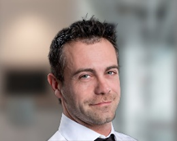 Michele de Palma - Swiss Federal Technology Institute of Lausanne (EPFL), Switzerland.
Michele de Palma - Swiss Federal Technology Institute of Lausanne (EPFL), Switzerland.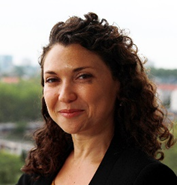 Leila Akkari - Netherlands Cancer Institute, The Netherlands.
Leila Akkari - Netherlands Cancer Institute, The Netherlands.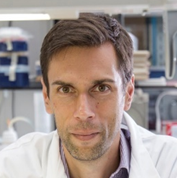 Erik Sahai - Francis Crick Institute, UK.
Erik Sahai - Francis Crick Institute, UK.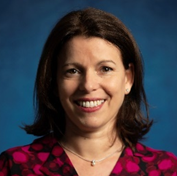 Neta Erez - Tel Aviv University, Israel
Neta Erez - Tel Aviv University, Israel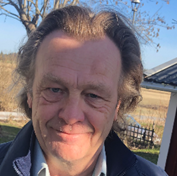 Arne Ostman - Karolinska Institutet, Sweden
Arne Ostman - Karolinska Institutet, Sweden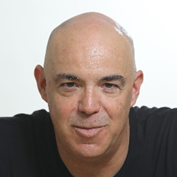 Dan Peer - Tel Aviv University, Israel
Dan Peer - Tel Aviv University, Israel 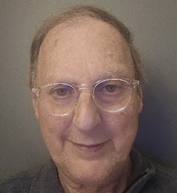 Alberto Gabizon - Hebrew University, Israel
Alberto Gabizon - Hebrew University, Israel 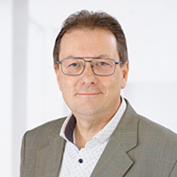 Jonathan Sleeman - Mannheim University, Germany)
Jonathan Sleeman - Mannheim University, Germany)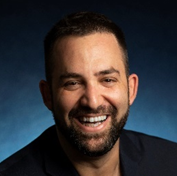 Assaf Zinger - Technion- Israel Institute of Technology, Israel
Assaf Zinger - Technion- Israel Institute of Technology, Israel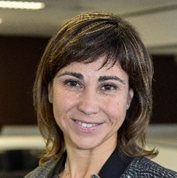 Maria J. Vicent - Príncipe Felipe Research Center Foundation (CIPF), Spain
Maria J. Vicent - Príncipe Felipe Research Center Foundation (CIPF), Spain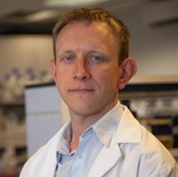 Oliver Pearce - Barts Cancer Institute, UK
Oliver Pearce - Barts Cancer Institute, UK 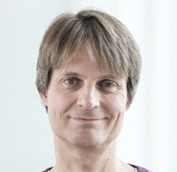 Peter Friedl - Radboud University Medical Centre, The Netherlands
Peter Friedl - Radboud University Medical Centre, The Netherlands 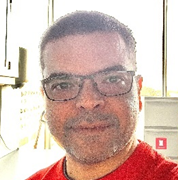 Alejandro E Mayorca-Guiliani - Nordic Bioscience A/S
Alejandro E Mayorca-Guiliani - Nordic Bioscience A/S 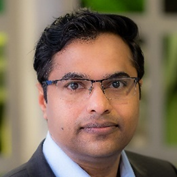 Rajkumar Savai - Max-Planck-Institute for Heart and Lung Research, Germany
Rajkumar Savai - Max-Planck-Institute for Heart and Lung Research, Germany 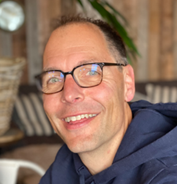 Derk Jan de Groot - University Medical Centre Groningen, The Netherlands
Derk Jan de Groot - University Medical Centre Groningen, The Netherlands 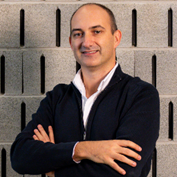 Bruno Sarmento - University of Porto, Portugal
Bruno Sarmento - University of Porto, Portugal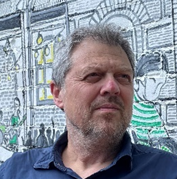 Joao Mano - University of Aveiro, Portugal
Joao Mano - University of Aveiro, Portugal 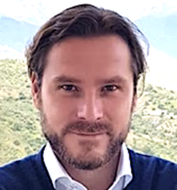 Twan Lammers - RWTH Aachen University, Germany
Twan Lammers - RWTH Aachen University, Germany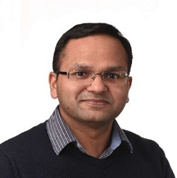 Jai Prakash - University of Twente, The Netherlands
Jai Prakash - University of Twente, The Netherlands 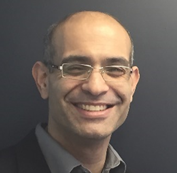 Yuval Shaked - Technion, Israel
Yuval Shaked - Technion, Israel 